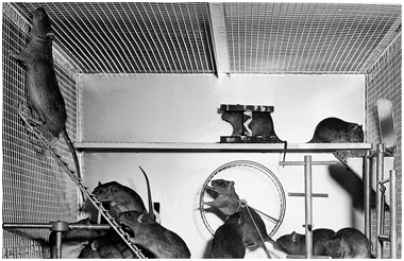Exam 6: Learning
Exam 1: Introduction and Research Methods63 Questions
Exam 2: Neuroscience and Biological Foundations60 Questions
Exam 3: Stress and Health Psychology69 Questions
Exam 4: Sensation and Perception41 Questions
Exam 5: States of Consciousness61 Questions
Exam 6: Learning51 Questions
Exam 7: Memory44 Questions
Exam 8: Thinking, Language, and Intelligence55 Questions
Exam 9: Lifespan Development I43 Questions
Exam 10: Lifespan Development Ii76 Questions
Exam 11: Motivation and Emotion42 Questions
Exam 12: Personality33 Questions
Exam 13: Psychological Disorders55 Questions
Exam 14: Therapy36 Questions
Exam 15: Social Psychology33 Questions
Select questions type
In classical conditioning, what is paired with the UCS to produce learning?
(Multiple Choice)
4.8/5  (32)
(32)
Describe the processes of generalization, discrimination, extinction, spontaneous recovery, and higher-order/discriminative stimulus in classical conditioning and operant conditioning. Use an example of each type of conditioning to illustrate your comparison.
(Essay)
4.9/5  (32)
(32)
An example of how prejudice is acquired through __________ would be if a mother acts upset and fearful when exposed to a particular ethnic group, it is likely that her child will learn to be upset when exposed to the same ethnic group.
(Multiple Choice)
4.9/5  (36)
(36)
The use of classical conditioning techniques to treat alcoholism _______.
(Multiple Choice)
4.8/5  (32)
(32)
This was an example of _____ because it demonstrated that the chicken's innate pattern of running after food (the ball) took precedence over running toward a stationary object (first base).
(Multiple Choice)
4.9/5  (33)
(33)
Which of the following is required for you to learn by observation?
(Multiple Choice)
4.8/5  (33)
(33)
An example of ___________ would be a child who having just been spanked for having a temper tantrum decides to go to the bathroom on the floor in retaliation for being punished.
(Multiple Choice)
4.8/5  (29)
(29)
Classical conditioning falls under which perspective of psychology?
(Multiple Choice)
4.8/5  (32)
(32)
Rats raised in an enriched versus a deprived environment typically develop all of the following EXCEPT_____. 
(Multiple Choice)
4.8/5  (37)
(37)
Showing 41 - 51 of 51
Filters
- Essay(0)
- Multiple Choice(0)
- Short Answer(0)
- True False(0)
- Matching(0)